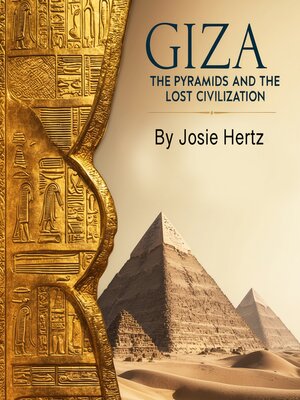
Sign up to save your library
With an OverDrive account, you can save your favorite libraries for at-a-glance information about availability. Find out more about OverDrive accounts.
Find this title in Libby, the library reading app by OverDrive.



Search for a digital library with this title
Title found at these libraries:
| Library Name | Distance |
|---|---|
| Loading... |
This audiobook is narrated by a digital voice.
On the edge of the vast Sahara Desert, where the fertile Nile Valley gives way to endless expanses of sand and stone, rises a limestone plateau that has captivated humanity for over four millennia. The Giza Necropolis, located just southwest of modern Cairo, stands as the most enduring testament to ancient Egyptian civilization and represents one of humanity's greatest architectural achievements. Here, during the Fourth Dynasty of the Old Kingdom around 2580-2510 BCE, three pharaohs commissioned monuments so magnificent and technically sophisticated that they would be counted among the Seven Wonders of the Ancient World, with the Great Pyramid remaining the only wonder to survive virtually intact to the present day.
The geographical setting of Giza was chosen with extraordinary care and precision by ancient Egyptian planners who understood both the practical and symbolic requirements for royal burial monuments of unprecedented scale. The plateau, elevated approximately 60 meters above the Nile floodplain, provided a stable foundation of solid limestone that could support massive structures while also ensuring that the royal tombs would remain above the annual inundation that brought life to the Nile Valley. The location's proximity to Memphis, the capital of Old Kingdom Egypt, made it easily accessible to the vast workforce and resources required for pyramid construction, while its position on the west bank of the Nile aligned with Egyptian religious beliefs about the realm of the dead being located where the sun sets each evening.







